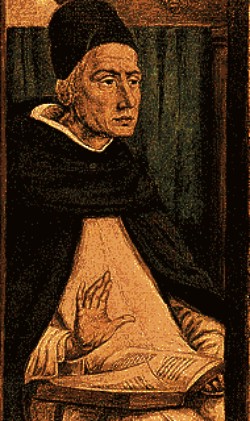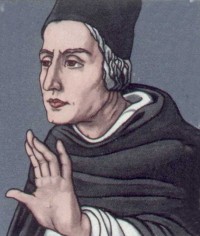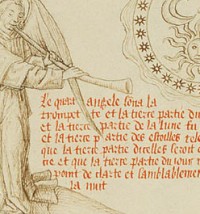|
|
TALISMANS | HORARY | ELECTIONAL | COURSES | BOOKS | PAYMENT | CONTACT | SEARCH |

|
| Christopher Warnock, Esq. |
| HOME |
|
|

|

|
|
Albertus' Book of Secrets
on the Astrology CD Library |
 |
|
Albertus Magnus
on Astrological Magic |
 |
| Albertus on Talismans |
 |
| Web Site Search |
|
|
The second great wisdom...is the science of the judgements of the stars, which provides a link between natural philosophy and metaphysics... No human science attains this ordering of the universe as perfectly as the judgement of the stars does.
Speculum Astronomiae
Albertus Magnus
Introduction
Albertus Magnus on Magic & Astrology

Albertus Magnus |
|
Albertus Magnus was born circa 1200 in what is now Germany. He became a Dominican friar, studied and taught at the renowned University of Paris and played an active role in the politics and government of the period, serving for a time as the bishop of Cologne. He died on November 15, 1280 in Cologne. He was famed as a scholar in his lifetime and as the years passed his renown increased. He is recognized as one of the few "Doctors" of the Catholic Church due to the immense significance of his theological writing. He was canonized as a saint in 1931.
Albertus wrote treatises on a whole range of subjects including the Heavens, the Properties of the Elements, Generation and Corruption, Meterology, Minerals and Metals, the Soul, Life and Death, Youth and Age, Nourishment, Sleeping and Waking, the Senses, the Intellect, Plants and Animals. Albertus' greatest contribution, however, was to begin the process of assembling the scholastic system of thought based on the newly rediscovered works of Aristotle. The use of the rigorous logic and rationalism of scholasticism allowed medieval thinkers to construct a unified schema of knowledge, internally consistent and coherent, in which all arts, sciences and theology were encompassed.

Angel of Revelation & Sun |
|
Albertus wrote a complete treatise on astrology and astronomy, considered at the time to be a single unified system, in his Speculum Astronomiae, "The Mirror of Astronomy". Albertus says of astrology, which explains the effects of the stars and planets on earthly affairs, that it provides a connection between natural philosophy, which treats of the material world and metaphysics, which treats of the Divine World. That the inferiors of the material world are so obedient to the unchanging cycles of the Celestial World, says Albertus, is a great proof of the primacy of God. "No human science attains this ordering of the universe as perfectly as the science of the judgement of the stars does." Speculum Astronomiae Chapter 3.
Albertus is careful to explain the differences between licit and illict use of the knowledge of astrology, particularly in the problematic area of astrological talismans. In this extract from the Speculum Astronomiae Albertus discusses various astrological talismans and which are evil and demonic and which are the product of natural magic and the natural powers of the Heavens.
Albertus also provides a voluminous discussion of the talismans of various Zodiacal and extra Zodiacal constellations from his treatise De Mineralibus, "On Minerals". Both of these extracts are a fascinating look at the state of the art thinking in medieval scholasticism, a radical departure from earlier medieval thought. Albertus' acceptance of the licit nature of some astrological talismans was quite influential on later Renaissance mages like Cornelius Agrippa and Marsilio Ficino.

HOME
Please Contact me with any Questions & Comments
Specializing in Horary Astrology, Electional Astrology Astrological Magic and Astrological Talismans.
Copyright 2006, Christopher Warnock, All Rights Reserved.